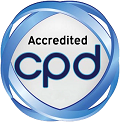
Ryang Hwa Lee
Assistant Professor
Texas A&M University
USA
Biography
Ryang Hwa Lee is an Assistant Professor of Molecular and Cellular Medicine at the Institute for Regenerative Medicine located in Temple, Texas. Dr. Lee received her B.S. in Microbiology in 1997 and Master’s degree in Medicine from Pusan National University School of Natural Science in 1999. She earned her Ph.D. in Physiology from Pusan National University Medical School in 2003 working with Dr. Jin Sup Jung on the characterization of human adipose & bone marrow derived mesenchymal stem cells. In 2003, she joined the Center for Gene Therapy at Tulane University Health Sciences Center, as a post-doctoral fellow working with Dr. Darwin Prockop on mesenchymal stem cells from human bone marrow. She came to the Institute for Regenerative Medicine with the Texas A&M Health Science Center in 2008 as a Research Scientist. Dr. Lee joined the faculty of Texas A&M University System Health Science Center in 2009.
Research Interest
Bone marrow-derived mesenchymal stem cells (MSCs) have attracted attention in efforts to develop cell therapies, because they are readily obtained from patients, expanded in culture and exhibit stem-like properties to differentiate into multiple cellular phenotypes. Currently, MSCs are employed in a large series of clinical trials in heart disease, Crohn’s disease, cartilage repair, stroke, spinal cord injury and several other diseases. However, clinical trials will require additional information about the most effective cells to employ, the optimal route of administration and -most importantly- the mechanisms whereby the cells repair injured tissues. This group specializes in determining the cellular and molecular mechanisms of beneficial effects of MSCs in diseases that include heart disease, diabetes, and peritonitis. The goal is to develop a cellular therapy for human diseases either (a) with adult stem/progenitor cells (MSCs), or (b) with therapeutic factors that MSCs produce in response to signals from injured tissues.

